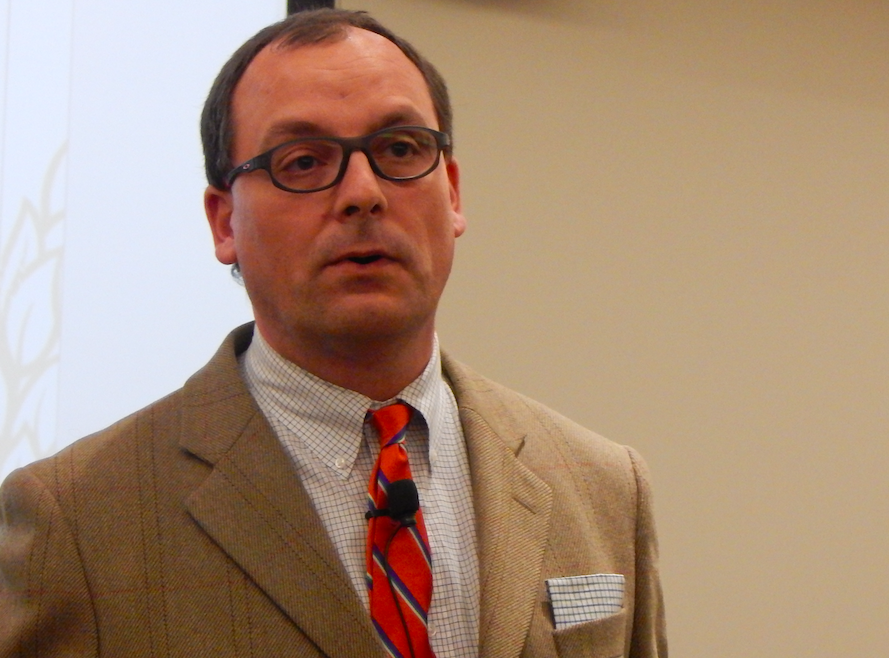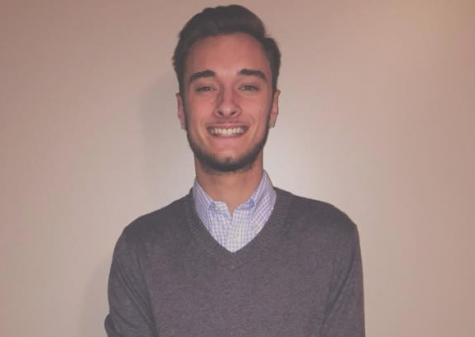Few seats were left vacant when Suffolk administration took center stage in front of concerned members of the university’s community Tuesday afternoon to address the expansion of the strategic plan. Acting President Marisa Kelly began the forum by outlining a broad addition to the university’s 2012 strategic plan that will be extended through 2019. This plan, which Kelly said will be tied to the university budget, will include a potential partnership with international student recruitment firm INTO University Partnerships.
Kelly, who tackled how to respond to the national decreasing numbers of traditionally-aged college students seeking a higher education in the Northeast, the high cost of earning a college degree, the challenges of international student enrollment and the external threat of local competition, said that the plan will reinforce “our historic mission but builds upon it in ways necessary to ensure our future.”
Acting Provost Sebastian Royo introduced INTO as a resource that has 33 global offices as well as nine partnerships across the United States in predominantly public universities such as Washington State University, Colorado State University and the University of Alabama at Birmingham.
The partnership, which would be a commission-based entity instead of an outside contractor, according to Kelly, is scheduled to be sent to New England Association of Schools and Colleges (NEASC) for review by the end of the week. After NEASC’s approval, the Board of Trustees will then review and potentially approve it for it to be possibly implemented at the university by January 2018, according to Royo.
Royo said that with the decrease in international student enrollment– from 1,509 in the 2015 academic year to 1,388 international students in the 2016 academic year– and the possibility of the new federal programs that President Donald Trump has looked to implement, raise questions with student visas.
“[International students] are worried that what they can do in the U.S. will be affected by the policies of the Trump administration,” said Royo.
Royo argued INTO would “increase our competitiveness in [the] international market” by leveraging enrollment through INTO’s reach and developing a stronger global footprint. This partnership, Royo said, would allow the university to admit a selective population of international students who are aligned with the brand and prestige Suffolk represents.
Kelly, who spoke extensively on ensuring that Suffolk was ranked both regionally and nationally, said it was time to conquer external threats that both all colleges in the country are facing, but also those threats specific to Suffolk.
Managing Associate Director of Student Financial Services Jennifer Ricciardi spoke on incorporating new initiatives that would promote diversity and inclusion on campus, focus on human resources, amplify student organizations and the Athletics department as well as increase housing opportunities.
“It’s Suffolk’s goal to make an agreement of an externally funded housing opportunity to most likely be opened in 2019,” said Ricciardi in an interview with The Suffolk Journal after the forum.
The university is currently unsure of the exact location or if the new housing would require students to take public transportation just yet, according to Senior Vice President of Finance and Administration Treasurer Laura Sander in an interview on Tuesday. The idea of the externally funded housing would “most likely be a developer owning the property,” but Suffolk would still have enough control, according to Ricciardi, where it would be a partnership, but not an outside contractor. The price, however, has not been determined as there are several conversation occurring on location still, but Sander hopes that pricing will be comparable to on-campus housing in Suffolk’s residence halls.
“What’s important is that the housing is accessible to students while also being financially affordable,” said Ricciardi.
Kelly suggested in an interview with The Journal that the goal is to generate housing for undergraduate students to take up residence for two years and expressed her hopes for the potential housing for graduate students.
















